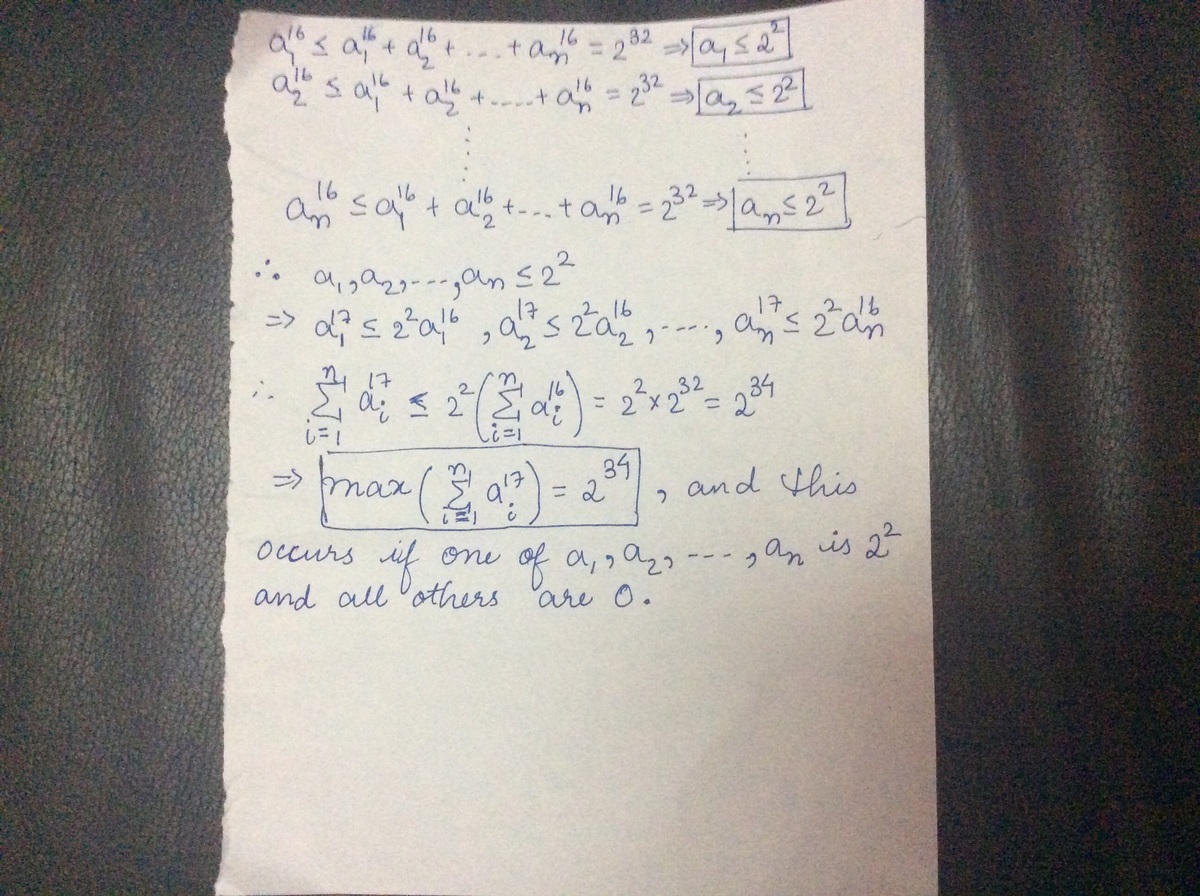Think Simple!
Given 1 0 0 reals a 1 , a 2 , … , a 1 0 0 such that i = 1 ∑ 1 0 0 a i 1 6 = 2 3 2 , we have maximum value of i = 1 ∑ 1 0 0 a i 1 7 to be of the form a k , where a is a prime and k is a positive integer. Find ( a + k ) .
The answer is 36.
This section requires Javascript.
You are seeing this because something didn't load right. We suggest you, (a) try
refreshing the page, (b) enabling javascript if it is disabled on your browser and,
finally, (c)
loading the
non-javascript version of this page
. We're sorry about the hassle.
NOTE : The maximum value is unaffected of the number of reals. The solution below considers a more general case of taking n reals, instead of 1 0 0 as mentioned in the problem.